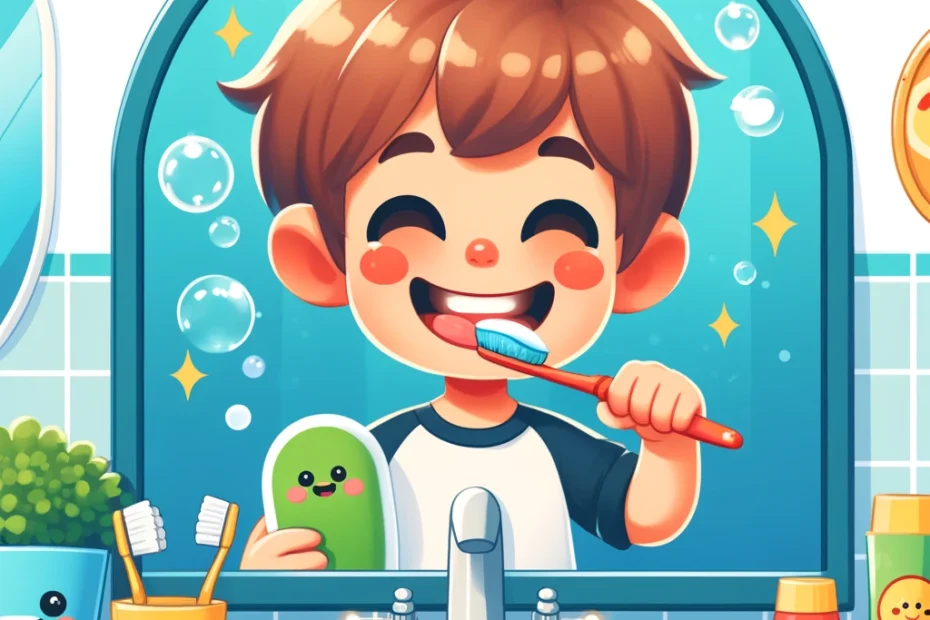Maintaining oral hygiene from a young age is crucial for lifelong dental health. Early habits shape the foundation of a healthy mouth, preventing future complications and instilling a sense of responsibility. Parents play a pivotal role in guiding their children towards good oral hygiene practices, ensuring they become second nature.
Baby teeth, or primary teeth, are more than just temporary placeholders. They play a vital role in a child’s development. These teeth aid in proper chewing and nutrition, help in speech development, and maintain space for the permanent teeth to grow correctly. Neglecting baby teeth can lead to severe consequences, including pain, infection, and misaligned permanent teeth.
The Role of Diet in Oral Health
Diet significantly influences oral health in children. A diet high in sugary snacks and beverages fosters an environment conducive to tooth decay. Conversely, a balanced diet rich in fruits, vegetables, dairy, and whole grains strengthens teeth and gums. Encouraging children to consume water instead of sugary drinks and incorporating calcium-rich foods can fortify their teeth against cavities.
Here is a table outlining a recommended oral healthcare diet for kids:
| Meal | Foods | Benefits |
| Breakfast | Oatmeal with fresh fruits (berries, apples), a glass of milk | Fruits provide vitamins; milk is rich in calcium, which strengthens teeth |
| Mid-Morning Snack | Sliced carrots and celery sticks with hummus | Raw vegetables clean teeth naturally, and hummus is a healthy dip |
| Lunch | Grilled chicken sandwich on whole grain bread, apple slices, and water | Whole grains are less likely to stick to teeth; apples help clean teeth |
| Afternoon Snack | Yogurt with a handful of nuts, a piece of cheese | Yogurt promotes healthy bacteria, nuts and cheese are good for teeth |
| Dinner | Baked salmon, steamed broccoli, quinoa, and a glass of water | Salmon is rich in vitamin D, and broccoli and quinoa are nutrient-dense |
This diet plan provides essential nutrients that contribute to oral health, while also incorporating foods that help clean and strengthen teeth naturally.
Encouraging Healthy Oral Habits
Developing healthy oral habits early on is essential. Children should learn to rinse their mouths after meals, avoid chewing on hard objects, and limit their intake of sugary snacks. Introducing a reward system can motivate kids to follow a routine, making oral care a positive experience rather than a chore.
Teaching children the correct way to brush their teeth is paramount. It’s not merely about the frequency but the technique. Children should be taught to brush all surfaces of their teeth using gentle, circular motions. Parents should supervise and assist until the child develops the dexterity to brush effectively independently. It’s beneficial to make brushing a family activity to model good behavior.
Consistency is key to developing and maintaining good oral hygiene habits. Establishing a routine where children brush their teeth at the same times each day—such as after breakfast and before bed—helps reinforce the habit. Setting reminders or using visual schedules can also help make this routine stick.
The Importance of Hydration
Hydration is often overlooked in discussions about oral health, yet it plays a crucial role. Drinking plenty of water helps wash away food particles and bacteria, reducing the risk of cavities. Moreover, water consumption stimulates saliva production, a natural defense against tooth decay. Encourage children to drink water frequently, especially after meals and snacks.
Additionally, water, free of sugars and acids in other beverages, is the best choice for keeping teeth strong and decay-free. Instilling the habit of choosing water over sugary drinks early on can significantly impact long-term oral health, promoting stronger teeth and a healthier smile.
The Benefits of Chewing Sugar-Free Gum
Chewing sugar-free gum can be an effective supplementary practice for maintaining oral hygiene.. Ensure the gum is genuinely sugar-free to avoid negating these benefits with added sugars. Chewing sugar-free gum can be an effective supplementary practice for maintaining oral hygiene:
- Increases Saliva Flow: Chewing gum stimulates saliva production, which helps neutralize acids produced by bacteria in the mouth.
- Washes Away Food Particles: Increased saliva flow helps rinse food particles and debris, reducing the risk of plaque buildup.
- Freshens Breath: Chewing gum, especially mint flavors, can help freshen breath by reducing odor-causing bacteria.
- Reduces Dry Mouth: Sugar-free gum can alleviate dry mouth, a condition that can contribute to tooth decay and gum disease.
- Prevents Tooth Decay: The act of chewing gum helps dislodge food particles stuck in the
Avoiding Harmful Habits
It is essential to educate children about habits that can harm their teeth, such as nail-biting, chewing on pencils, or using teeth to open packaging. These activities can cause chips, cracks, and undue wear on the teeth. Gentle guidance and offering alternative stress-relief techniques can help curb these behaviors.
Here are some common habits that children often adopt which can be detrimental to their oral health:
- Nail-Biting: Nail-biting can cause chips and cracks in the teeth and introduce harmful bacteria into the mouth.
Solution: Encourage children to use stress-relief techniques such as squeezing a stress ball or engaging in calming activities.
- Chewing on Pencils or Other Objects: Constantly chewing on hard objects can wear down tooth enamel, causing damage and increasing the risk of fractures.
Solution: Offer safe alternatives like chewing gum (sugar-free) to help break this habit.
- Using Teeth to Open Packaging: Using teeth as tools can lead to cracks, chips, and even broken teeth.
Solution: Teach children to use scissors or other appropriate tools instead of their teeth.
- Consuming Sticky and Chewy Candies: These candies tend to stick to teeth, providing a prolonged source of sugar for bacteria and increasing the risk of cavities.
Solution: Encourage children to choose less sticky treats and to brush their teeth soon after consuming such foods.
- Thumb Sucking and Prolonged Use of Pacifiers: These habits can lead to misaligned teeth and bite problems.
Solution: Gradually wean children off these habits by offering praise and rewards for not engaging in them and providing comfort in other ways.
Preventing Pediatric Dental Issues & Dental Visits
Children are susceptible to various dental problems, including cavities, gum disease, and enamel erosion. Preventive measures such as sealants, which protect the grooves in children’s teeth from decay, and educating children about the risks of sharing utensils or toys that can transfer bacteria are essential to maintaining oral health.
Role-playing can be a helpful tool for alleviating the anxiety associated with dental visits. Parents can act as the dentist and the child as the patient, simulating a dental check-up at home. This familiarizes the child with what to expect, reducing fear and making real visits more comfortable. Including toy dental tools and playfully discussing each step can make this an educational and enjoyable activity.
Fun Ways to Make Oral Hygiene Enjoyable
Making oral hygiene fun can encourage children to engage more willingly. Introducing colorful, character-themed toothbrushes, playing their favorite songs while brushing, or using apps that make brushing interactive can transform a mundane task into an enjoyable activity. Storytelling about tooth fairies or incorporating educational videos can also make the concept of oral hygiene more appealing to young minds.
Creating a reward system where children earn stickers or small prizes for consistent brushing can be highly motivating. Incorporating themed weeks, such as “Pirate Week” where kids can “hunt for treasure” (plaque) with their toothbrushes, adds an element of excitement and creativity. Engaging children in choosing their dental products, from toothbrushes to toothpaste flavors, empowers them and makes them more enthusiastic about their oral care routine.
Oral health is intrinsically linked to overall health. Poor oral hygiene can lead to issues beyond the mouth, such as infections affecting other body parts. Children with good oral health tend to have higher self-esteem, better school performance, and fewer missed days due to dental problems. Understanding this connection helps underscore the importance of maintaining a healthy mouth. By incorporating these comprehensive practices, parents can significantly enhance their children’s oral hygiene, setting the stage for a lifetime of healthy smiles.

Dr. Orion Johnson is a dedicated and compassionate dentist committed to providing exceptional dental care to his patients.Dr. Johnson obtained his Doctor of Dental Surgery (DDS) degree from a prestigious dental school, where he excelled academically and clinically. He is licensed to practice dentistry and stays updated with the technology through continuing education and training.

